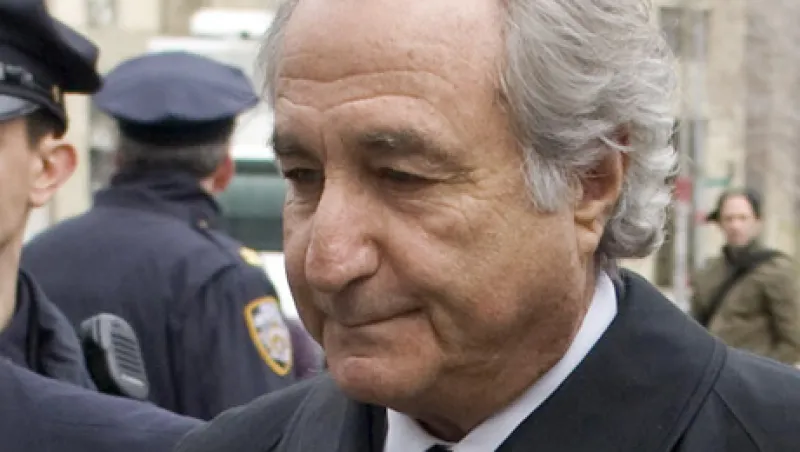Bernie Ebbers, Jeff Skilling, Bernie Madoff. How different would life be for investors if these fraudsters and others had been smoked out before they did their damage?
Lie detection is at the crux of psychology and criminal justice. Much has been written about the body language, the subconscious expression and the linguistic signifiers of deception. In terms of investment, stopping fraud could save billions, as any investor in Enron, WorldCom or Madoff Investment Securities could attest.
Financial professionals’ widespread agreement on the need to stop such fraud in its tracks was the inspiration for an intensive study commissioned by Jason Voss, the content director of Charlottesville, Virginia–headquartered CFA Institute, a global organization of professionals working in the investment industry. Voss, a former portfolio manager of the Davis Appreciation & Income Fund, hopes ultimately to create a product or training program to help equity analysts develop perceptiveness with regards to potential dishonesty on the part of high-ranking corporate executives. Of the training initiatives offered by the CFA Institute, this one has garnered the most positive response, with 91 percent of members showing interest.
To develop a lie detection process geared specifically for the financial world, the CFA Institute has enlisted Maria Hartwig, a social psychologist who specializes in the study of lying, lie detection, interviewing and interrogation. In a workshop offered by the institute on October 24, Hartwig, an associate professor at the John Jay College of Criminal Justice, part of the City University of New York, pointed out that most people assume that liars provide clear, distinguishable signals such as fidgeting, gaze aversion and implausible statements. But a synthesis of the scientific literature on deception has shown this not to be the case. People are unable to root out deception slightly more than half of the time, as suggested by 50 years of scientific research on the topic. “People believe in the fiction of Pinocchio,” Hartwig asserts. Hartwig and Voss say this will be the first scientific research study on deception in the financial industry.
Research in the science of deception has focused primarily on the criminal justice system. The research and the direction for this study will thus require a different approach, notes Voss. “You can’t waterboard a CFO,” he says.
As part of their offerings in partnership with the CFA Institute, Hartwig, Voss and John Jay colleague D. Brian Wallace co-wrote a paper titled “Detecting Lies in the Financial Industry: A Survey of Investment Professionals’ Beliefs,” which is to be published in an upcoming edition of the Journal of Behavioral Finance. The survey, which was conducted online with 607 CFA Institute members across 76 countries, yielded results similar to those that surfaced in volumes of nonfinancial studies. Participants believe they can detect lies with about 66 percent accuracy, engendering widespread, incorrect stereotypes about deceptive behavior.
The CFA project presented another challenge for Hartwig, whose goal is to train people to act against their natural inclinations and long-held beliefs. She has retrained military interrogators to improve their lie detection skills. Despite being professionals in the field, these interrogators showed a worse than average record than the general population in recognizing a lie, with a mere 43 percent hit rate. After working with Hartwig, they improved their lie detection rate to 66 percent.
Not surprisingly, some analysts have been skeptical. “I believe my ability to read a CEO’s body language is a distant second to being a strong fundamental analyst,” says Howard Chen, who covers brokerages, exchanges and trust banks for Credit Suisse. While he agrees a new training program could be beneficial, Chen insists that as an analyst his “primary job is providing solid bottoms-up analysis and client service, which is largely agnostic of this.”
Of course there is a difference between the needs of military police and financial analysts. Voss and Hartwig hope to formulate a research-based product based on how to be smarter, not fall prey to fallacies and be better at asking the right questions. “What you have to do is interact with liars and truth tellers” and learn how to intervene to provoke different responses, Hartwig explains. Overall, the training may look a bit like a chess game, with financial professionals learning to anticipate their opponents’ moves and make better strategic moves themselves. An expert player will learn how to ask questions in such a way that the liar is trapped.
Read more about regulation.






